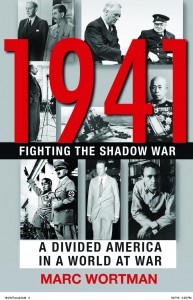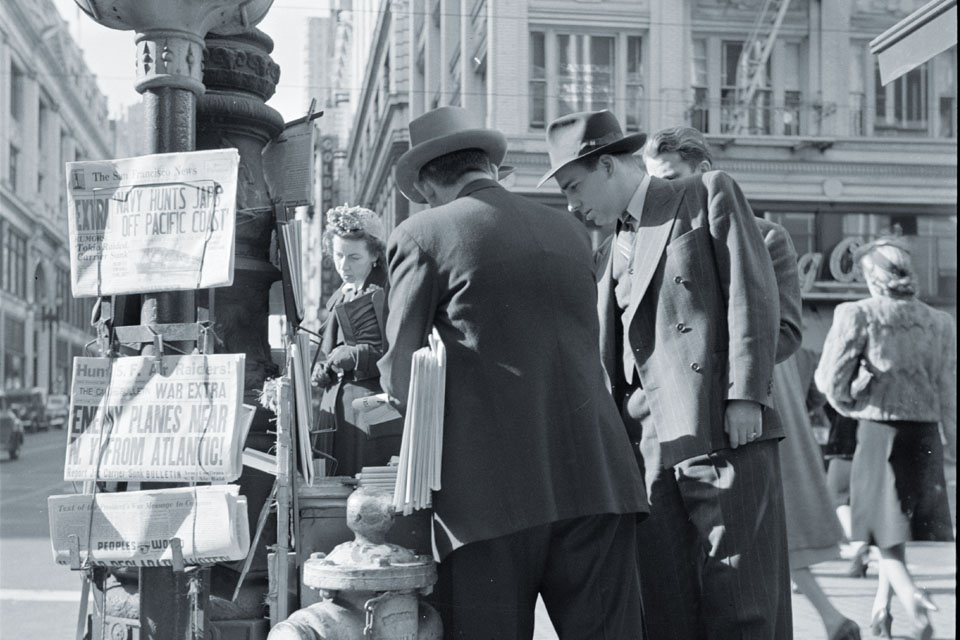 [dropcap]I[/dropcap]t is likely that anyone reading this account of the maneuvering to get the United States into—or keep the United States out of—World War II knows the outcome. However, 1941 author Marc Wortman still makes his story a genuine page-turner. America’s declarations of war against Japan, Germany, and Italy may have been a geopolitical inevitability, but in Wortman’s hands the push and pull of the forces leading to that momentous point hum with the pulsating energy of a cliffhanger.
[dropcap]I[/dropcap]t is likely that anyone reading this account of the maneuvering to get the United States into—or keep the United States out of—World War II knows the outcome. However, 1941 author Marc Wortman still makes his story a genuine page-turner. America’s declarations of war against Japan, Germany, and Italy may have been a geopolitical inevitability, but in Wortman’s hands the push and pull of the forces leading to that momentous point hum with the pulsating energy of a cliffhanger.
Wortman begins with Germany’s September 1, 1939, invasion of Poland and hopscotches the globe. He skillfully interweaves events in the German, Japanese, and British inner war councils with the countervailing pressures on President Franklin D. Roosevelt from hawkish interventionists and an isolationist faction broadly backed by a battle-shy electorate. The tension increases as Roosevelt, eager for a casus belli, orders the U.S. Navy into increasingly provocative actions while Adolf Hitler angles to deflect the United States from the immediate conflict, and neither country pays enough attention to Tokyo’s strategies.
Except for a few personal interviews with survivors of those pre-war months, Wortman has tapped no new veins of material. His mastery is two-fold: he has winnowed from mountains of books and archival documents instructive incidents and telling quotes that shape and propel his narrative, and has organized these gems into a cohesive whole. Wortman lays out his labyrinthine tale such that the reader always knows exactly what is going on and how it relates to what has gone before.
A key device of 1941 is a focus on an ensemble of players—Roosevelt and Churchill, of course, and FDR’s chief confidante, Harry Hopkins, to name three—whom Wortman visits and revisits in different settings and at different critical moments.
To enhance his chronicle’s sense of flow, the author draws from less obvious wells, such as the broadcasts and writings of CBS Berlin bureau chief William L. Shirer, aviator Charles Lindbergh’s increasingly virulent anti-war activities, and skeptical diary entries made by Benito Mussolini’s son-in-law, Galeazzo Ciano. Wortman’s narrative technique has produced a book that is readable, accurate, and exciting.
—Washington-based journalist Daniel B. Moskowitz is a frequent contributor to World War II.
Originally published in the May/June 2016 issue of World War II magazine. Subscribe here.





